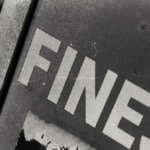The Court of Appeals for the Eleventh Circuit has upheld the dismissal of a lawsuit against a collection agency that was accused of violating the Fair Debt Collection Practices Act because of confusing language in a letter sent to the plaintiff. What makes the case interesting is that back in March, the plaintiff’s attorney published a press release announcing the filing of the class-action suit.
A copy of the ruling in Conde v. Webcollex can be accessed by clicking here.
The plaintiff received a collection letter from the defendant that included the following language:
Unless you notify this office within 30 days after receiving this notice that you dispute the validity of this debt or any portion thereof, this office will assume this debt is valid. If you notify this office in writing within 30 days after receiving this notice that you dispute the validity of this debt, this office will obtain verification of the debt or obtain a copy of a judgment and mail you a copy of such judgment or verification. If you request of this office in writing within 30 days after receiving this notice, this office will provide you with the name and address of the original creditor, if different from the current creditor.
The plaintiff said the letter violated Section 1692g(a)(4) of the FDCPA because it did not clearly state that he could dispute any portion of the debt, and Section 1692e(10) of the FDCPA because the omission was a false, deceptive, or misleading representation. The defendant filed a motion to dismiss the case, which a District Court judge granted. The plaintiff appealed the ruling.
The FDCPA requires collectors to include in their written notice to an individual that “if the consumer notifies the debt collector in writing within the thirty-day period that the debt, or any portion thereof, is disputed, the debt collector will obtain verification of the debt or a copy of a judgment against the consumer and a copy of such verification or judgment will be mailed to the consumer by the debt collector.”
Because the letter included the statement “or any portion thereof,” it fulfilled the statutory requirement, the Appeals Court ruled.
The plaintiff alleged the second sentence in the notice, “If you notify this office in writing within 30 days after receiving this notice that you dispute the validity of this debt, this office will obtain verification of the debt or obtain a copy of a judgment and mail you a copy of such judgment or verification,” was misleading because it does not mention that any portion of the debt can be disputed, which could be taken to mean that any portion of the debt could be disputed orally, but the entire debt had to be disputed in writing.
In its ruling upholding the dismissal, the Appeals Court sided with the defendant.
Webcollex’s letter unequivocally stated that a consumer could “notify this office within 30 days after receiving this notice that you dispute the validity of this debt or any portion thereof.” The letter does not limit how a consumer may notify the office, whether orally or in writing. Nor does Webcollex distinguish its later statements by specifying that they only apply to the entire debt. As the district court ably explained, “reading the letter as a whole clearly communicates that the recipient has the right to challenge ‘any portion’ of the debt.”









